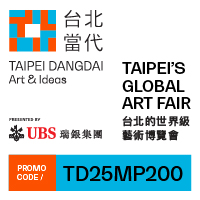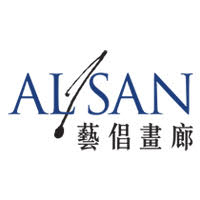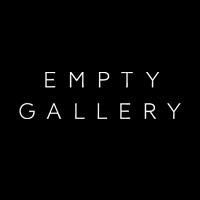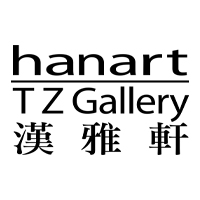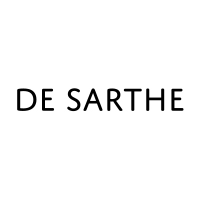Guggenheim Breaks Off Negotiations with Gulf Labor Coalition
By HG Masters
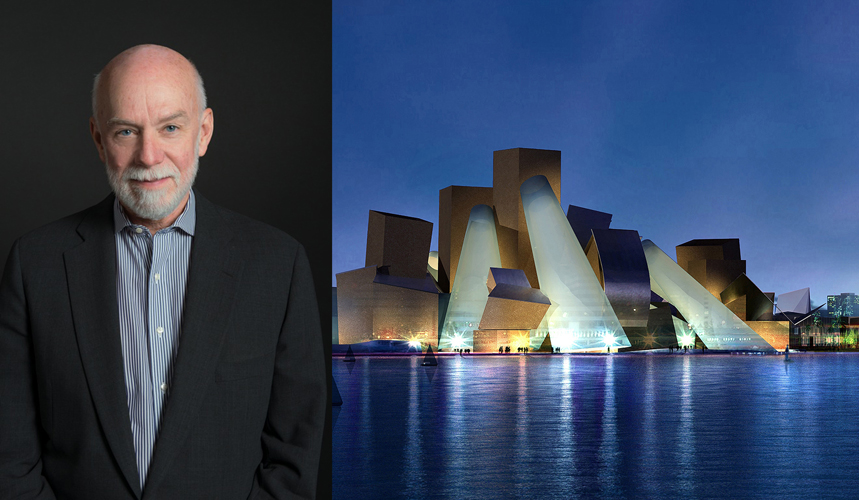
(Left) Guggenheim Museum and Foundation director Richard Armstrong. Photo by David M. Heald. Courtesy Solomon R. Guggenheim Museum. (Right) A rendering of the future Guggenheim Abu Dhabi by Frank Gehry Partners, LLP.
After a year of renewed formal dialogue between the Guggenheim Foundation and labor-activist groups about workers rights and compensation on the Saadiyat Island campus of the Guggenheim Abu Dhabi, talks have broken down. On April 18, the Gulf Labor Coalition (GLC) announced publicly that the Guggenheim Board of Trustees had unilaterally terminated the dialogue with the activist group during a conference call on April 13. This was followed an by email sent to artists, curators and museum colleagues around the world by the Guggenheim Foundation director Richard Armstrong on April 17, in which he accused Gulf Labor of continuing to “shift its demands on the Guggenheim beyond the reach of our influence as an arts institution while continuing to spread mistruths about the project and our role in it.” Armstrong reiterated the Guggenheim’s claim that “there are no workers on the Guggenheim Abu Dhabi” and that “there is no construction on the site because a contractor has not been selected”—claims that Gulf Labor has contested by showing the landscaping and infrastructure on Saadiyat Island being prepared in advance of the Frank Gehry-designed building. Over the weekend, the Gulf Ultra Luxury Faction (GULF), the protest wing of GLC, announced it would resume public actions against the Guggenheim, which it had ceased during the previous year.
Over the past year, members of the GLC and the Guggenheim had met three times, in the wake of GULF’s public actions on May 1, 2015, at the Solomon R. Guggenheim in New York that lead to the museum being shut down for the day, and at the Peggy Guggenheim Collection in Venice on May 8 during the opening of the Venice Biennale. Earlier in the spring, three members of GLC—New York University professor Andrew Ross, and artists Walid Raad and Ashok Sukumaran—had been denied entry to the UAE.
According to GLC, the first of those three meetings took place on June 3, with Guggenehim Board Chairman William Mack and President Jennifer Blei Stockman in attendance for the first time. A second meeting on September 15, 2015, included board member Stephen Robert. GLC then requested a “summit level meeting” that would include representatives of GLC, the Guggenheim and several labor- and human-rights groups, which was scheduled for February 2016. That meeting included Fiona Murie of Building and Woodworkers’ International, Jill Wells from Engineers Against Poverty, Sarah Leah Whitson from Human Rights Watch, Jeffrey Vogt of International Trade Union Confederation, and Shilkha Silliman Bhattacharjee from Society for Labor and Development.
In its April 18 statement the GLC reported that the three-hour meeting was “productive,” and that the coalition followed up with two concrete proposals: to begin bi-weekly meetings between the GLC and its NGO partners and the Guggenheim and TDIC (the Abu Dhabi agency overseeing the development of Saadiyat Island), and that the groups discuss five areas of policy, including recruitment debt, subcontracting, workers’ representation and “robust monitoring.” Although GLC says it left the February meeting feeling “optimistic,” the Guggenheim’s response was to shut down the formal talks completely.
In the conference call on April 13 in which the Guggenheim broke off its dialogue with GLC and partners, it blamed the activist and labor groups for making demands “outside of their reach,” about issues that are “matters of state,” and repeated Richard Armstrong’s own previous accusations towards the GLC that the group was distributing “deliberate falsehoods” through the media and protests. The GLC statement released on April 18 says it “regrets that Guggenheim has broken off negotiations in a hostile manner” and claims the museum is on a “self-destructive path.” A spokesperson for the Guggenheim Foundation disputed this characterization, writing to ArtAsiaPacific: "The call [of April 13] was professional and polite in tone. We explained that such meetings are no longer productive and offered to continue to update Gulf Labor on project developments."
HG Masters is editor at large of ArtAsiaPacific.
